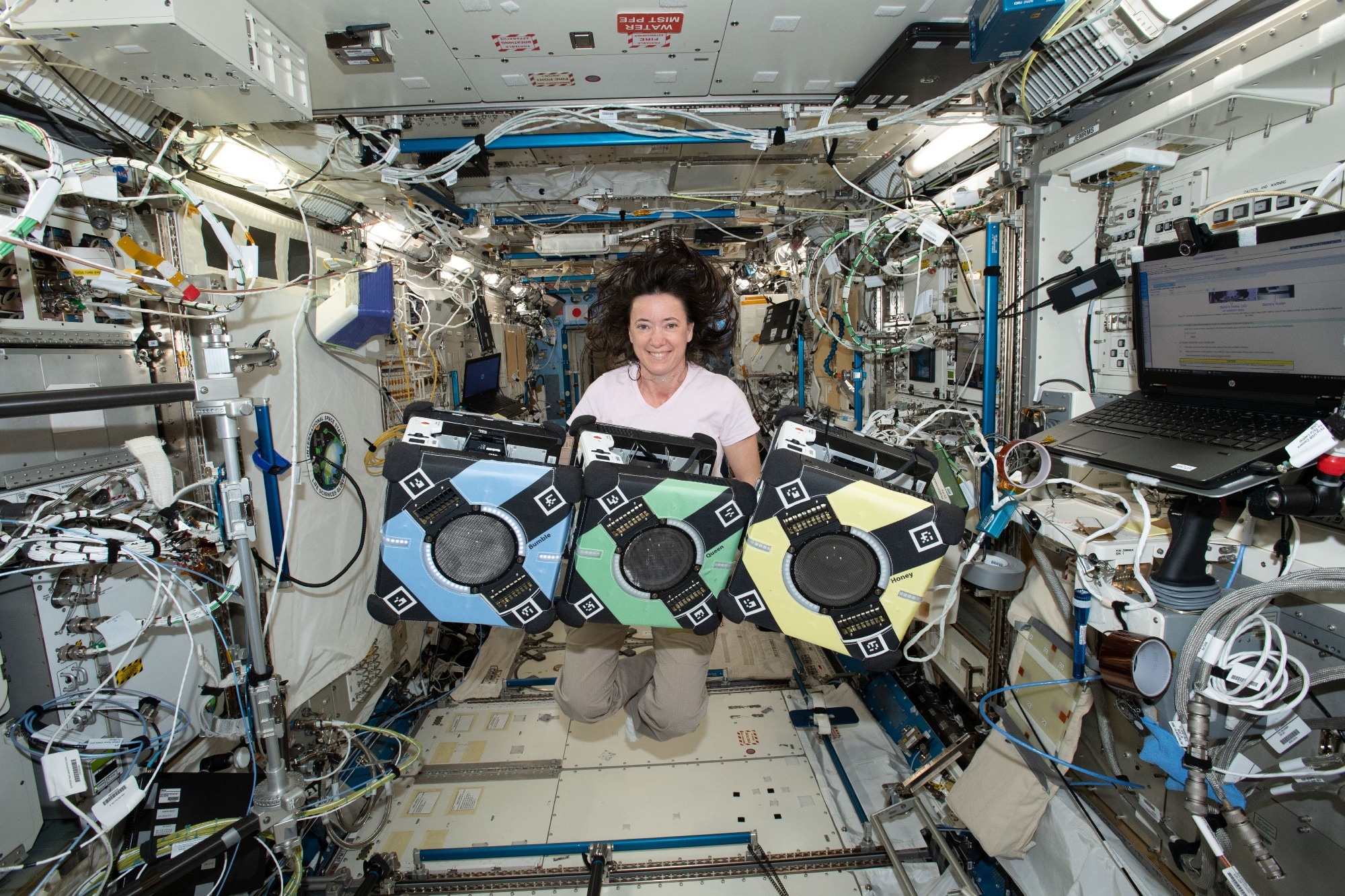Reviewed by Lexie CornerApr 26 2024
In science fiction movies, we often see robots zipping around spacecraft performing various tasks. What was once only science fiction has now come to life on the International Space Station (ISS), where NASA’s trio of free-flying robots called Astrobees assist astronauts and conduct valuable research, including many investigations sponsored by the ISS National Laboratory®.

Image Credit: International Space Station (ISS) National Laboratory
In the latest issue of Upward, the official magazine of the ISS National Lab, see how researchers are using the Astrobees—named Queen, Honey, and Bumble—to test innovative new technology with important applications on future spaceflight missions and back on Earth. In one investigation, engineering firm Bosch partnered with aerospace company Astrobotic to use the Astrobees to test smart microphone technology that can identify anomalies in spacecraft and other equipment by making sense of sounds.
In another project, researchers from the Massachusetts Institute of Technology (MIT) and the German Space Agency used the robots to test algorithms and technology that could help recover tumbling satellites in space.
The Astrobees are also helping build the future space industry workforce through MIT’s Zero Robotics competition, a Space Station Explorers partner program. Students in grades 6-12 participate in a competition in which they write computer code to control the free-flying robots in challenges on the space station. By teaching students valuable coding skills and providing an opportunity to interact with astronauts on station, Zero Robotics aims to inspire students to pursue careers in science and engineering fields.
Read more in the Upward article “Free-Flying Robots in Space: How Real-Life Droids are Testing New Tech.” Upward is dedicated to communicating the results of ISS National Lab-sponsored experiments that demonstrate the value of space-based research and technology development. The full Upward Volume 7, Issue 1 is now available for download, along with previous issues.